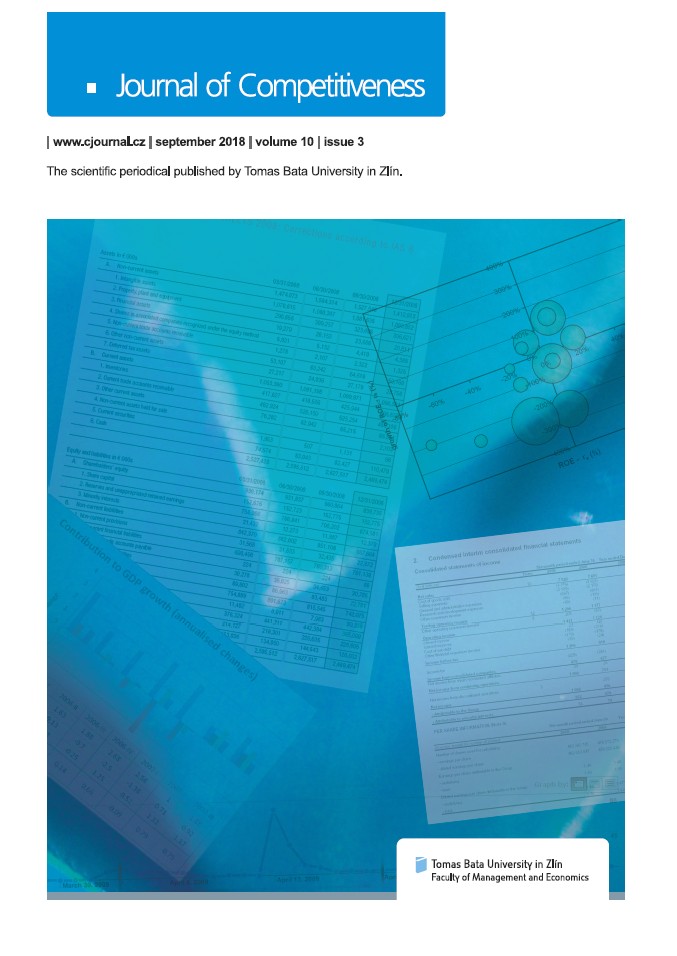Banking, Competitiveness and Sustainability: The Perspective of the Three Global Actors: US, China, Europe
IF 4.4
1区 管理学
Q2 BUSINESS
引用次数: 1
Abstract
The research presents the interrelationships between banking performance, competitiveness and sustainability of the three banking systems and the impact of each sustainability variable selected on the other macroeconomic indicators in short, medium and long-time horizon. The empirical study involved the use of a panel Auto Regressive Vector methodology and was based on macroeconomic indicators relevant to the performance of the banking system (return on assets, return on equity, an annual growth rate of Gross Domestic Product), as well as indicators that can be assimilated to sustainability (renewable fuels used, CO2 emissions). The dependent variables were return on assets and the annual growth rate of Gross Domestic Product. The global sample analyzed comprises 29 countries, spread over three continents (Europe, North America, Asia), with data collected over a 10-years period (2011-2020). These countries together account for approximately 62% of global GDP (data from 2020). The research results show that as banks invest in green energy and sustainable products, competitiveness will also increase, which will have a negative impact on profitability in the short term. In the medium and long term, this impact will become positive also in terms of profitability increase. This strategic move to develop sustainable business models and to finance a higher percentage of green investments also adds extra competitive advantages, such as reputation and smart differentiation, from other less sustainability-oriented banking systems. The process impacts the systemic level, the macro perspective, the banking organizational level, the micro perspective, together with the perception of the customers.银行业、竞争力和可持续性:美国、中国和欧洲这三个全球参与者的视角
研究展示了三个银行系统的银行绩效、竞争力和可持续性之间的相互关系,以及选择的每个可持续性变量对其他短期、中期和长期宏观经济指标的影响。实证研究涉及使用面板自动回归向量方法,并基于与银行系统绩效相关的宏观经济指标(资产回报率、股本回报率、国内生产总值年增长率)以及可吸收的可持续性指标(使用的可再生燃料、二氧化碳排放)。因变量为资产收益率和国内生产总值年增长率。所分析的全球样本包括29个国家,分布在三大洲(欧洲、北美和亚洲),数据收集时间为10年(2011-2020年)。这些国家加起来约占全球GDP的62%(数据来自2020年)。研究结果表明,随着银行对绿色能源和可持续产品的投资,竞争力也会提高,这将在短期内对盈利能力产生负面影响。从中长期来看,这种影响在盈利能力增加方面也将变得积极。这一发展可持续商业模式和为更高比例的绿色投资提供资金的战略举措,也增加了与其他不太注重可持续性的银行体系相比的额外竞争优势,例如声誉和智能差异化。这一过程影响着系统层面、宏观层面、银行组织层面、微观层面以及客户的感知。
本文章由计算机程序翻译,如有差异,请以英文原文为准。
求助全文
约1分钟内获得全文
求助全文
来源期刊

Journal of Competitiveness
Multiple-
CiteScore
11.30
自引率
2.70%
发文量
33
审稿时长
12 weeks
期刊介绍:
The Journal of Competitiveness, a scientific periodical published by the Faculty of Management and Economics of Tomas Bata University in Zlín in collaboration with publishing partners, presents the findings of basic and applied economic research conducted by both domestic and international scholars in the English language.
Focusing on economics, finance, and management, the Journal of Competitiveness is dedicated to publishing original scientific articles.
Published four times a year in both print and electronic formats, the journal follows a rigorous peer-review process with each contribution reviewed by two independent reviewers. Only scientific articles are considered for publication, while other types of papers such as informative articles, editorial materials, corrections, abstracts, or résumés are not included.
 求助内容:
求助内容: 应助结果提醒方式:
应助结果提醒方式:


